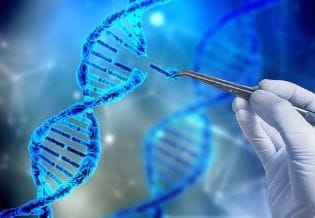Copyright & License
Understand your rights and responsibilities when publishing with the Journal of Cancer Genetics and Biomarkers (JCGB).
Protect Your Ownership, Maximise Your Reach
JCGB believes that authors should retain control over their intellectual property while enabling the swift dissemination of knowledge. This page explains the copyright transfer process, Creative Commons licensing, reuse permissions, and best practices for sharing your work responsibly.
- As an author, you retain copyright to your manuscript.
- Upon acceptance, you grant JCGB a non-exclusive license to publish, archive, and distribute your work.
- No transfer of ownership occurs; you may deposit accepted manuscripts and published versions in repositories, institutional websites, or personal pages.
- Co-authors share equal rights; obtain mutual agreement before republishing excerpts or derivative works.
All JCGB content is distributed under the Creative Commons Attribution 4.0 International License. This means:
- Anyone may copy, distribute, display, and perform your work.
- Anyone may adapt, remix, transform, and build upon your work for any purpose, including commercially.
- Users must provide appropriate credit, link to the license, and indicate if changes were made.
- No additional restrictions may be applied that legally prevent others from doing anything the license permits.
Share Freely
Post your final PDF or HTML on institutional repositories, lab websites, ResearchGate, LinkedIn, or personal blogs. Provide the DOI and link back to the JCGB landing page.
Create Derivatives
Develop book chapters, conference presentations, policy briefs, or educational materials based on your article. Cite the original publication and note any updates.
Translate & Adapt
Translate your article into other languages, produce audio or video summaries, or adapt figures for patient-facing resources—retain credit and mention the CC BY license.
Reuse Figures & Tables
Include JCGB figures and tables in future publications by citing the original source and license. If third-party content is included, secure permissions separately.
- Authors must obtain permission to reuse copyrighted material (figures, tables, images, long text excerpts) not created by the authors.
- Provide documentation of permissions (emails, license agreements) during submission.
- Clearly credit third-party content in figure captions or footnotes, indicating that reuse may require permission.
- Consult rights holders to clarify whether third-party content can be relicensed under CC BY 4.0; otherwise, replace or redraw material.
Under CC BY 4.0, third parties may reuse JCGB content provided they:
- Credit the original authors and JCGB.
- Link to the original article or DOI.
- State if changes were made (e.g., “Adapted from…”).
- Do not imply endorsement by authors or JCGB without explicit permission.
Commercial reuse (e.g., including content in a paid course or corporate whitepaper) is permitted as long as attribution requirements are met.
- AI developers, researchers, and educators may text-mine or data-mine JCGB content without prior approval.
- When publishing results of mining, cite the source articles and note that content was mined under CC BY 4.0.
- Respect privacy and ethics; do not extract sensitive patient information from supplementary data without proper approval.
- JCGB’s CC BY 4.0 policy complies with Plan S, NIH, Horizon Europe, Wellcome Trust, and other open-access mandates.
- Deposit your article in funder repositories or submit compliance forms using the published PDF or XML.
- Our metadata feeds (Crossref and other recognized indexing platforms) facilitate automated funder reporting.
- JCGB encourages preprints on platforms such as bioRxiv or medRxiv before peer review.
- After publication, update the preprint with the DOI of the JCGB article and note any revisions.
- Accepted manuscripts (post-peer review) may be deposited in institutional repositories immediately.
- No embargo applies to self-archiving at any stage.
- JCGB screens submissions using iThenticate to detect plagiarism or duplicate publication.
- Authors are responsible for ensuring originality and proper citation of reused text.
- If infringement is identified post-publication, JCGB may issue corrections, expressions of concern, or retractions in line with COPE guidelines.
- You may reference JCGB in resumes, grant applications, and promotional materials.
- JCGB logos may be used in slides, posters, or press releases to indicate publication, provided they are not altered and the context is factual.
- For large-scale promotional campaigns, contact [email protected] for brand guidelines.
| Scenario | Action Required | Contact |
|---|---|---|
| Author wishes to reuse JCGB figure in a book | Cite original article, mention CC BY 4.0 | No formal permission needed |
| Third party wants to translate a JCGB article | Provide attribution and link to license | No formal permission needed |
| Journalist requests high-resolution figure | Send figure with credit line | Email [email protected] |
| Company wants to include JCGB content in promotional material | Provide attribution, confirm accuracy | Email [email protected] if endorsement implied |
| Reuse of third-party material within JCGB article | Authors secure permissions; provide documentation | Upload to ManuscriptZone |
- If you believe your rights have been infringed, contact JCGB with evidence of misuse.
- JCGB will investigate, notify the responsible party, and, if necessary, issue takedown requests or pursue legal remedies.
- Most disputes are resolved through clarification of the CC BY 4.0 license terms.
Can I publish the same work elsewhere?
No. Duplicate publication violates publication ethics. However, you may expand or adapt your work (e.g., into a book chapter) if you clearly cite the JCGB article and ensure substantial new content.
Do I need permission to share the JCGB PDF?
No. You are encouraged to share the final PDF. Provide proper attribution and link to the JCGB article.
How do I request permission for third-party content within my article?
Contact rights holders (publishers, image libraries) prior to submission. Use templates provided by your institution or adapt JCGB’s sample permission letter available on request.
What if a reuse request conflicts with my funder’s policies?
JCGB’s CC BY policy is compatible with major funders. Discuss specific concerns with the editorial office; we can provide documentation or clarify license terms to satisfy compliance teams.
Use this checklist to confirm that licensing requirements are met prior to final proof approval:
- Third-Party Permissions: All external images, tables, or datasets have written permission or have been replaced with author-created alternatives.
- Attribution Statements: Figures, tables, and supplementary materials include consistent credit lines referencing JCGB and CC BY 4.0.
- Repository Links: Self-archived versions in institutional or subject repositories include the article DOI and license statement.
- Press Materials: Draft press releases or media kits reference the CC BY license and contain accurate summaries.
- Translation Plans: If planning translations, identify native-language collaborators and ensure they understand attribution requirements.
- Commercial Partnerships: Notify sponsors or industry partners about open-access licensing to set expectations for reuse and branding.
Creative Commons License
Read the full legal code and plain-language summary of CC BY 4.0.
Visit Creative CommonsInstructions for Author
Ensure manuscript sections align with JCGB guidelines before submission.
Review Author InstructionsEditorial Policies
Understand peer review, ethics, and corrections procedures.
Read Editorial PoliciesHave a Licensing Question?
Contact the JCGB editorial office for tailored guidance on copyright, reuse, or permissions.
Last updated: September 2025. JCGB may update licensing policies to comply with evolving legal frameworks and community expectations. Authors will be notified of any changes affecting published or forthcoming articles.


